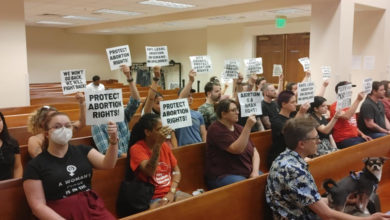Ten rural hospitals have closed in Tennessee since 2012; the tenth (Cumberland River Hospital) closed this month. Tennessee is second in the country behind Texas for the most closures of rural hospitals throughout a state since 2010. Mounting debt is usually the immediate reason for these closures. Because hospitals are often the main employer in rural towns and counties, such closures often result in significant job losses and as well as the creation of health care deserts. This puts rural residents at risk of increased illness, poverty and health care costs. Tennessee Governor Bill Lee has promised to invest more of the state’s money and expertise to rural hospitals. Yet, this has been a slow process; and hospitals throughout the state continue to close in the meantime.
Some rural Tennesseans are forced to travel out of state for care because of a hospital closure where they live. Their efforts can be futile at times, however, because a facility in another state may not accept TennCare or the Medicare Advantage coverage from Blue Cross & Blue Shield of Tennessee, which is the state’s largest insurer. Even when rural dwellers can find care within Tennessee, many must drive over an hour to reach a hospital. This can be disastrous in times of emergency.
Even when hospitals in these areas can remain open, they are often forced to cut basic services in order to save money. Hospital closures and service cuts are particularly hard on women. Maternity services are usually the first type of care to be discontinued when a rural hospital is in trouble. In fact, more than half of all U.S. rural hospitals lack a maternity ward. In some areas, maternity care is so lacking that EMT drivers are being trained to deliver babies.
Rural people with insurance and a stable income have fewer problems with traveling to urban areas to receive medical care. However, patients in rural hospitals tend to be uninsured, poor, and older. According to the Centers for Disease Control, rural people have higher death rates from heart disease, cancer, respiratory disease, stroke and accidents. In addition, infant mortality is 20 percent higher in rural counties than in urban ones. Overall, people in rural areas tend to be sicker and poorer than those living in urban areas. One could argue that it is unconscionable to close medical facilities in communities where they are most needed.
Nationwide, rural hospitals are closing at a rate of one per month, and President Trump has done nothing to stop this. A bill that would expand funding and create more protections for rural hospitals has largely been ignored since it was introduced in the House in 2015. Furthermore, in January reimbursements for programs that allow rural hospitals to buy drugs at discounted rates were reduced by the Centers for Medicare and Medicaid Services.
It appears that the federal government has little interest in keeping rural hospitals open around the United States. Some people blame Tennessee’s failure to expand Medicaid as the main reason behind the rural hospital closures. Others blame the lack of reimbursement funding from programs like TennCare. Ultimately, the blame rests on the government’s insistence on treating health care as a business instead of a universal right.
There is more than enough money available in the government’s budget to keep all hospitals open in the United States. However, our society’s continued reliance upon the capitalist system and privatized health care has resulted in millions of people having with survive little to no medical treatment on a regular basis. Universal health care paid for by the government would increase access to and quality of care. A socialized health care system would also protect hospitals from the whims of the capitalist market.
In the United States, higher administrative costs due to high drug prices, salaries and a complicated payment system have resulted in lower quality and more expensive health care. Something clearly needs to change if we want to see an end to people dying unnecessarily in rural areas or anywhere else in the United States. We must unite and demand that the government invest in rural and urban facilities at an equal rate to ensure that all people have access to medical treatment. And we must fight for socialism so to transform our country’s health care system from one based on profit to one that strives to meet the medical needs of all people.





